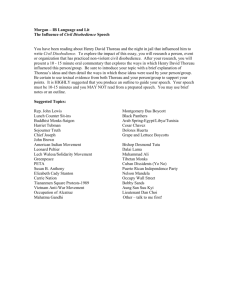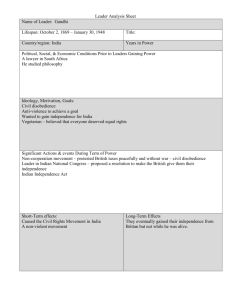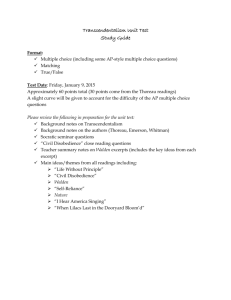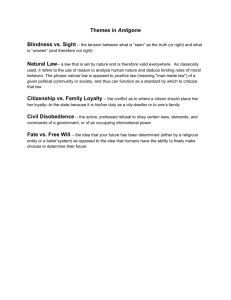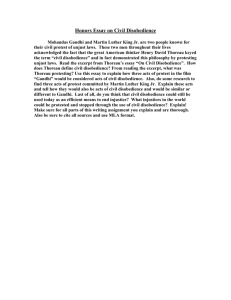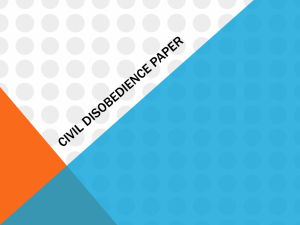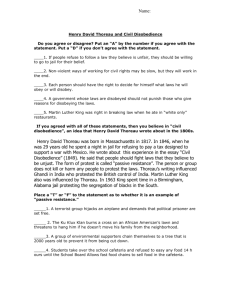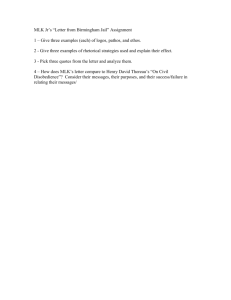Antigone and Civil Disobedience
advertisement
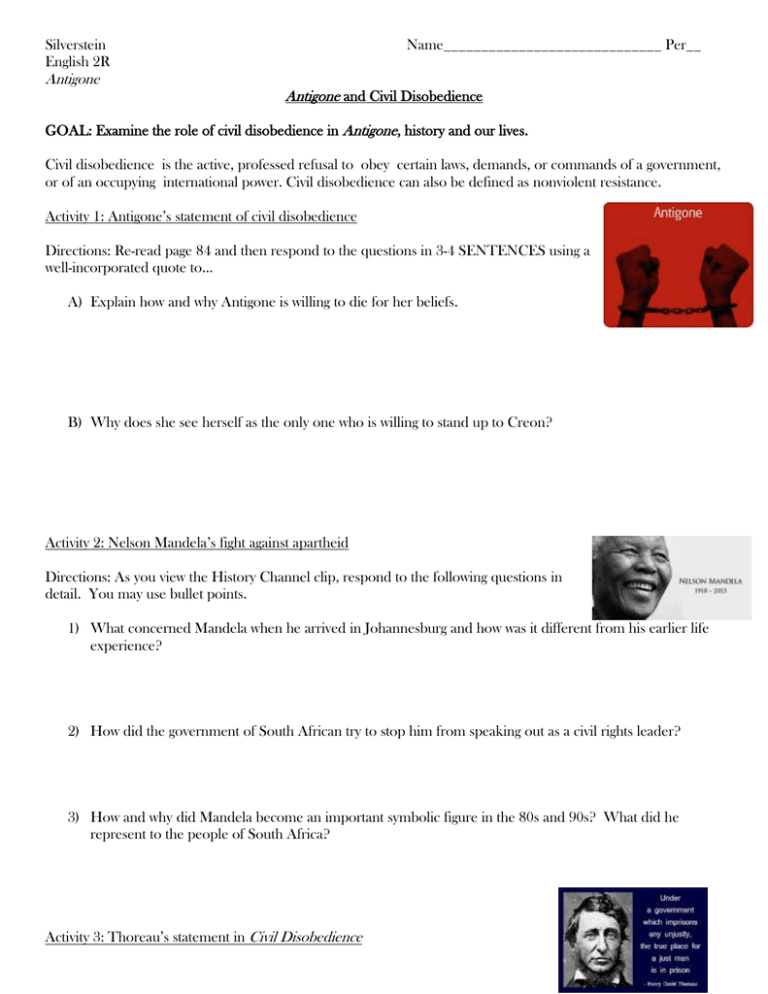
Silverstein English 2R Name_____________________________ Per__ Antigone Antigone and Civil Disobedience GOAL: Examine the role of civil disobedience in Antigone, history and our lives. Civil disobedience is the active, professed refusal to obey certain laws, demands, or commands of a government, or of an occupying international power. Civil disobedience can also be defined as nonviolent resistance. Activity 1: Antigone’s statement of civil disobedience Directions: Re-read page 84 and then respond to the questions in 3-4 SENTENCES using a well-incorporated quote to... A) Explain how and why Antigone is willing to die for her beliefs. B) Why does she see herself as the only one who is willing to stand up to Creon? Activity 2: Nelson Mandela’s fight against apartheid Directions: As you view the History Channel clip, respond to the following questions in detail. You may use bullet points. 1) What concerned Mandela when he arrived in Johannesburg and how was it different from his earlier life experience? 2) How did the government of South African try to stop him from speaking out as a civil rights leader? 3) How and why did Mandela become an important symbolic figure in the 80s and 90s? What did he represent to the people of South Africa? Activity 3: Thoreau’s statement in Civil Disobedience Directions: Read the excerpt from Henry David Thoreau’s famous essay Civil Disobedience and answer the following questions in FULL SENTENCES. “Unjust laws exist: shall we be content to obey them, or shall we endeavor to amend them, and obey them until we have succeeded, or shall we transgress them at once? Men generally, under such a government as this, think that they ought to wait until they have persuaded the majority to alter them. They think that, if they should resist, the remedy would be worse than the evil. But it is the fault of the government itself that the remedy is worse than the evil. It makes it worse. Why is it not more apt to anticipate and provide for reform? Why does it not cherish its wise minority? Why does it cry and resist before it is hurt? Why does it not encourage its citizens to be on the alert to point out its faults, and do better than it would have them?” (1849) 1) What does Thoreau think people should do about unfair laws and why? 2) What does Thoreau think stops people from taking action against unfair laws and why? 3) Ultimately, through his technique of rhetorical questioning, Thoreau blames whom or what? Explain. Activity 4: Our ideas on civil disobedience Directions: Review the definition of civil disobedience at the top of the previous page and answer the following questions in 3-4 FULL SENTENCES. 1) Describe at least two examples of civil disobedience from your own life, literature, history or current events. (Do not just use other example from this handout!) 2) Describe two current laws, rules or policies do you find unjust. to help change these laws, rules or policies? How can people enact civil disobedience Closure: At the bottom of page 99, Haemon declares his statement of civil disobedience. Explain how and why he feels that he must enact it. Do you think he and Antigone will be able to overcome Creon’s decrees—why or why not? Include at least one well-incorporated supporting quote in your response.
